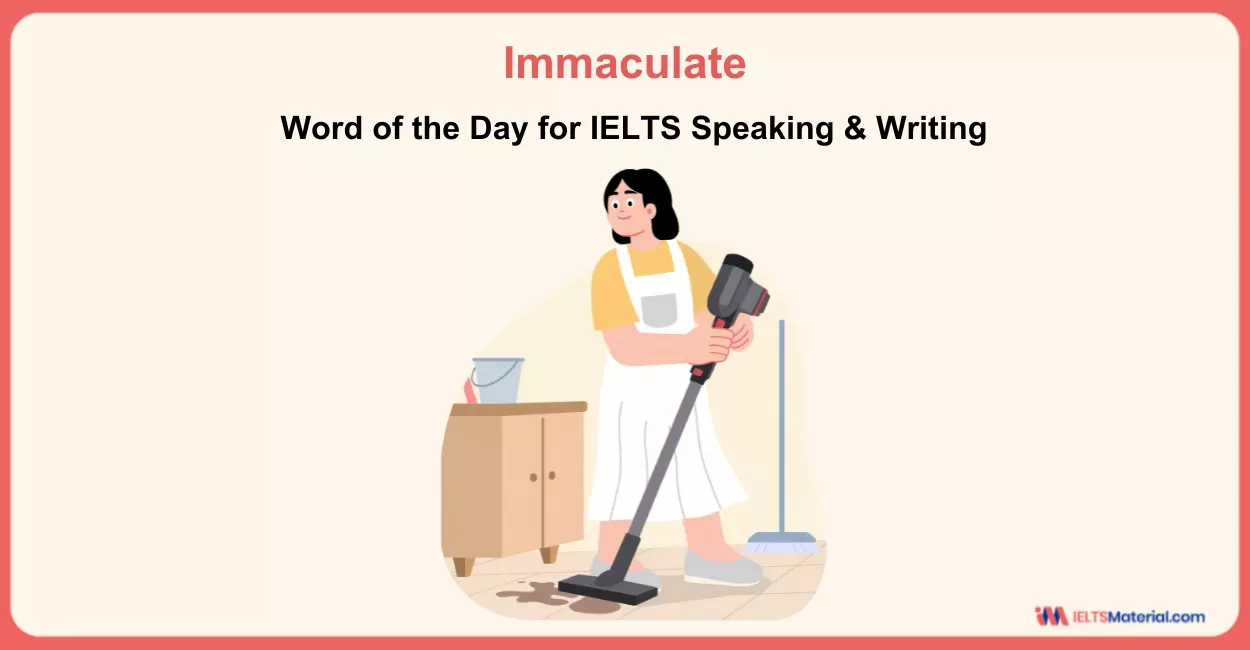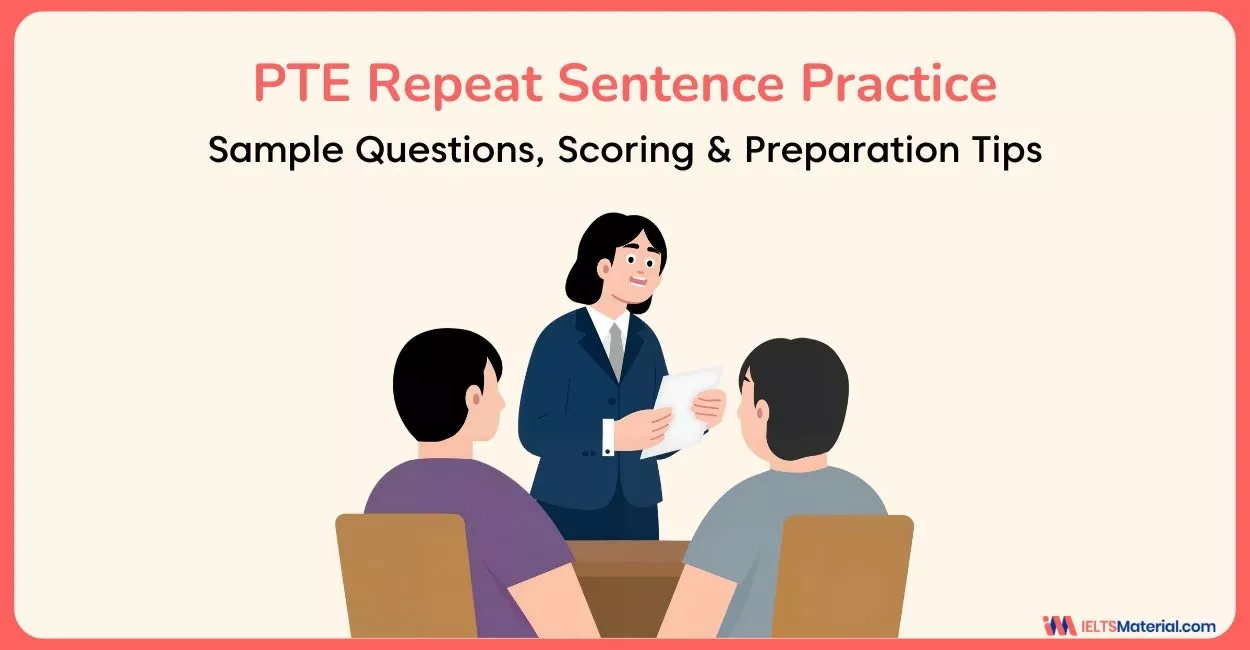What is Collocation for IELTS?
Looking to find ways to sound fluent in Writing and Speaking Sections? Dive into the knowledge of what is collocation and learn its importance, types, and examples in which you can use these in sentences to ace the IELTS exam with a higher band score.
Table of Contents

Try AI Essay Checker for Instant Band Score
In the IELTS exam, the proper use of collocations will help improve your fluency and coherence. By understand what is collocation, you will be able to secure a better band score in both writing and speaking tests. The key to sound more fluent and ace the IELTS exam with a band score of 8+ is knowledge that you acquire about the term and its usage. Remember that mastering collocations is important for enhancing your communication skills effectively as it helps learners use the appropriate words in the right context.
As there are different varieties of collocations, you need to know why they appear to be important in communication. With consistent practice, you will be able to understand the usage of collocation in writing and in IELTS Speaking sections. However, you must practice using such words on a regular basis to build the confidence needed.
Collocation: Definition
As the word suggests, Co means together and location means place. It refers to a group of words that usually go together. In other words, these are words that like to hangout together. Even though there are many other possible word combinations, understanding collocations help English learners improve their fluency because they are words that usually go together.
The table below shows a few examples of collocations and its meaning.
| Collocation | Meaning | Example |
|---|---|---|
| Make the bed | To arrange the bed. | Tina asked her kids to make the bed. |
| Make noise | To make a loud and disruptive sound. | The students make noise when the teacher is not around. |
| Make a decision | To decide something. | Harry made a decision to study abroad. |
| Break a promise | To fail at keeping a promise. | Sally apologized for breaking a promise. |
| Take a risk | To do something which is uncertain and dangerous. | Mandy took a risk and started her own brand. |
Difference Between Natural English and Unnatural English in Terms Of Collocation
The use of the word 'make' does not mean that you have to construct a bed or prepare noise. That is the difference between natural and uunatural English in terms of using collocation.
Let's look at the difference through the table given below:
| Natural English | Unnatural English |
|---|---|
| Make bed | Construct bed |
| Fast food | Quick food |
| Make room | Build room |
| Take rest | Buy rest |
Why Do Words Collocate?
There is often no specific reason for a collocation. People just put certain words together more often than they put other words together. Collocations are used often in business English and there are dictionaries such as the Oxford Dictionary of Collocations that can help you learn these common collocations.This puts forth your level of the language usage.
Grab the newly launched Vocabulary for IELTS (Essential words for popular topics in IELTS) to level up your preparation.
Importance of Learning Collocation
Proper use of collocation in the IELTS exam will help in increasing your band scores and would make you confident in the language. Collocation learning is the most important step in mastering the English language through fluency, cohesiveness, and accuracy in expression. Below are some of the points in terms of the importance of learning collocation.
- Your language will be more natural
- Collocations often make learning English easier and certain ideas can be put forth by combining two words that go well together.
- It is easier for our brains to remember and use language in chunks or blocks rather than as single words.Putting together these chunks of language leads to more fluent English.
What are Strong Collocations?
Strong collocations are words that almost always go together. There are possibilities that people might understand you if you don’t use a strong collocation. However, you might sound funny, if you do not use strong collocations.
|
For example: I did my bed. I made my bed. |
Both mean the same thing. Such usage of strong collocation shows your excellent command of the English language, and can certainly help impress native speakers of your ability to speak English well. Of course, if you are speaking to other non-native speakers the ability to use collocations correctly all the time becomes less important. And it does not reduce the importance of using collocation in your conversations with non native speakers. Using correct collocation is as important as using the correct sense.
|
For example: Our meeting was on Tuesday at five thirty o’clock in Lucknow. I’ve done an appointment at five thirty in Lucknow. |
In both of these sentences, there are mistakes. However, in the first sentence instead of using a future tense, the past tense is used. If you want your colleagues to come to the meeting, this mistake is very serious and will lead to no one coming to the meeting, as everyone would assume that the meeting is already over.
In the second sentence ‘do an appointment’ is a misuse of a strong collocation. However, the meaning is clear: You have scheduled a meeting at five thirty. In this case, a mistake in collocations is not nearly as important as a mistake in tense usage.
Struggling with IELTS? Our experts can help you achieve your target score with our Free Webinar now.
Types Of Collocations
Since collocations are phrases that come together naturally in a language, using them will make you sound more fluent and native-like, especially in IELTS Writing and Speaking Modules. To understand it better, you must note that it is possible to classify collocations into various types depending on how two words are paired. Below are some of the different types of collocations.
| Types Of Collocations |
|---|
| Adverb + adjective |
| Adjective + noun |
| Noun + noun |
| Noun + verb |
| Verb +noun |
| Verb + expression with preposition |
| Verb + adverb |
1. Collocation Type 1 : adverb + adjective
In the collocation type 1, an adverb adds intensity or modification to the adjective or adverb for sounding more natural in the overall expression. These combinations are based on common usage rather than strict grammar rules.
|
For example :
|
2. Collocation Type 2 : adjective + noun
An adjective would naturally combine with the noun to create an expression if you use the Collocation Type 2 : adjective + noun. The right word ensures clarity and correctness of meaning, as certain words only “fit” in certain combinations. Let's check out a few examples below.
|
For example :
|
3. Collocation Type 3 : noun + noun
The Collocation Type 3: noun + noun are those with noun combinations which appear naturally and meaningfully together. Some of the common noun collocations are used as vocabulary in business such as the term "sales team", in education like "school bus", in terms of health would be "heart disease", and in day-to-day life such as "credit card".
|
For example :
|
4. Collocation Type 4 : noun + verb
Collocation type 4 : noun + verb is the term used for combinations of words in which a noun commonly collocates with a particular verb to form phrases that are common in English. Such collocations further allow you to use clarity in your communication.
|
For example :
|
5. Collocation Type 5 : verb + noun
Mastering the Collocation Type 5 : verb + noun makes your spoken and written communication sound polished and professional. These collocations are used from informal conversations to academic settings to negotiation rooms.
|
For example :
|
6. Collocation Type 6 : verb + expression with preposition
The Collocation Type 6: Verb + Expression with Preposition includes combinations where a verb needs a certain fixed prepositional phrase, making you speak coherently with natural expression.
|
For example :
|
7. Collocation Type 7 : verb + adverb
In the Collocation Type 7 : verb + adverb refers to those which have a pairing of a verb with an adverb that helps in making your speech and writing become more fluent and natural. These collocations can help you to impart exact meaning and emotion with reference to the given situation.
|
For example :
|
By understanding how collocations work, you will be able to ace the IELTS Writing and Speaking sections. This can significantly boost your language proficiency level as you prepare for the IELTS exam. Therefore, it is important to understand how the different types of collocations work and how they are used in a sentence. Familiarize yourself with the concept and utilize these collocations in your preparation as you practice with the Recent IELTS Writing Actual Test & Model Answers and achieve a band 8+.
Also check:
Explore IELTS Writing

Start Preparing for IELTS: Get Your 10-Day Study Plan Today!
Explore other IELTS Articles

Kasturika Samanta

Haniya Yashfeen
Recent Articles
Haniya Yashfeen

Kasturika Samanta








Post your Comments